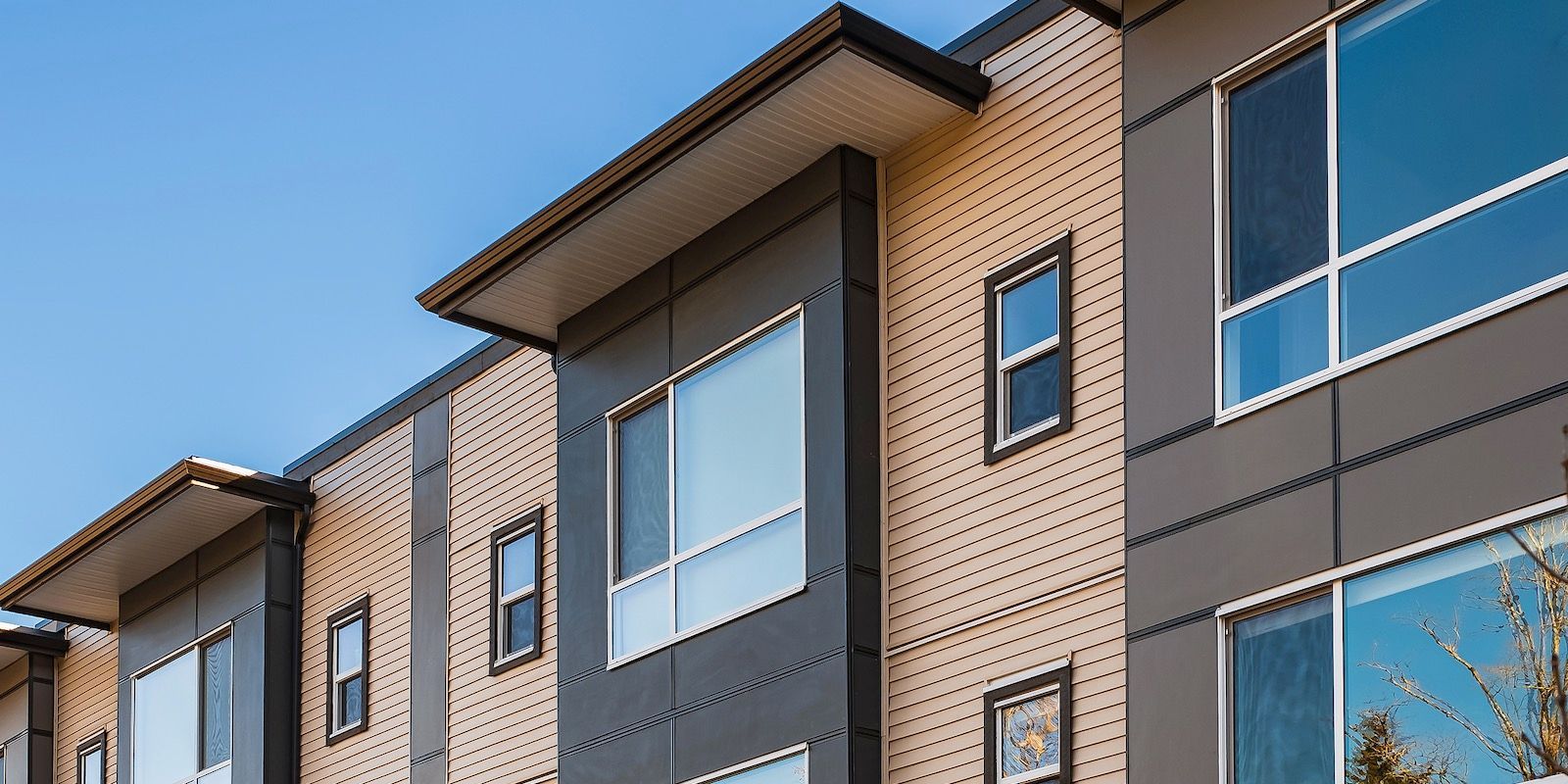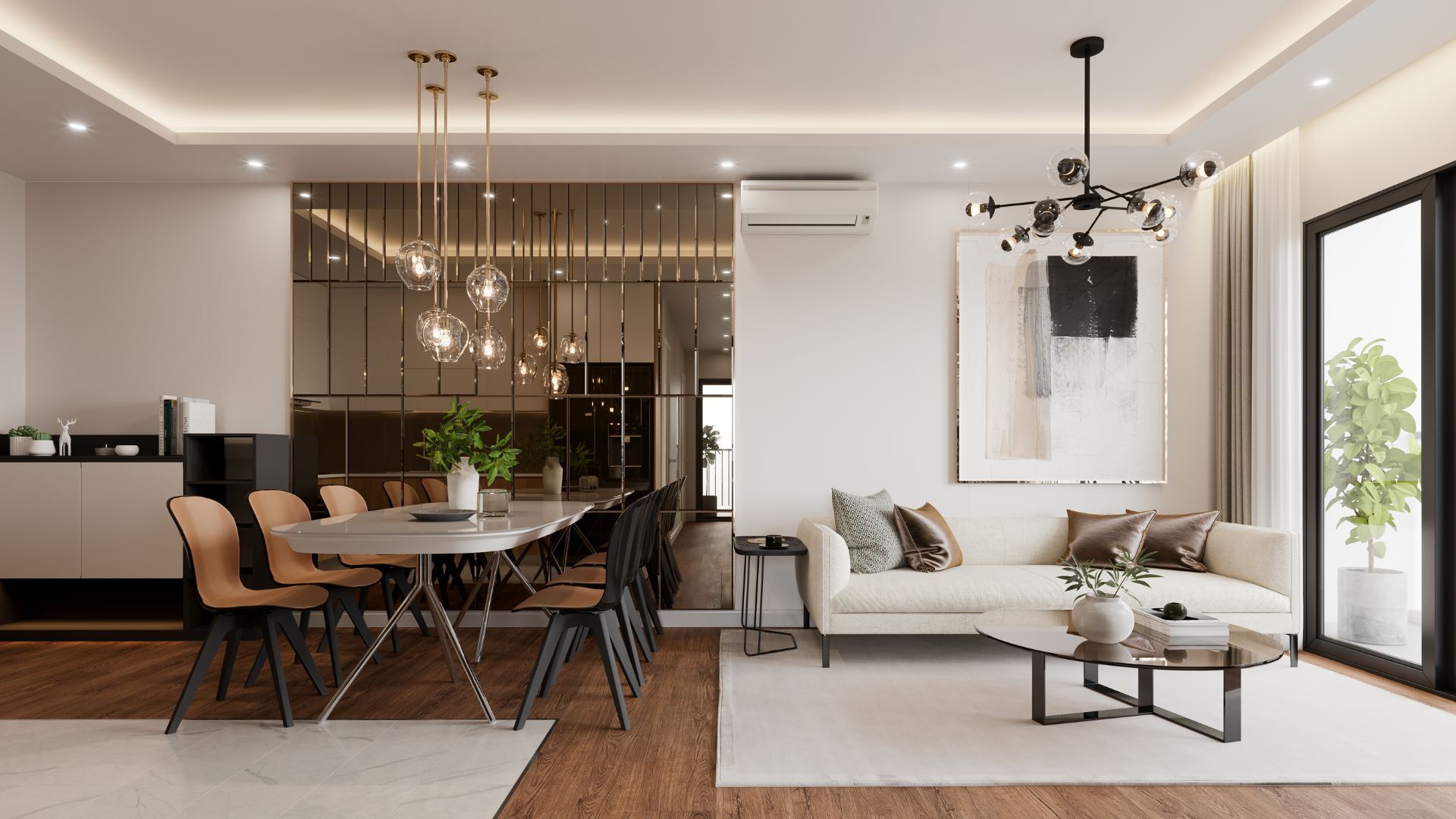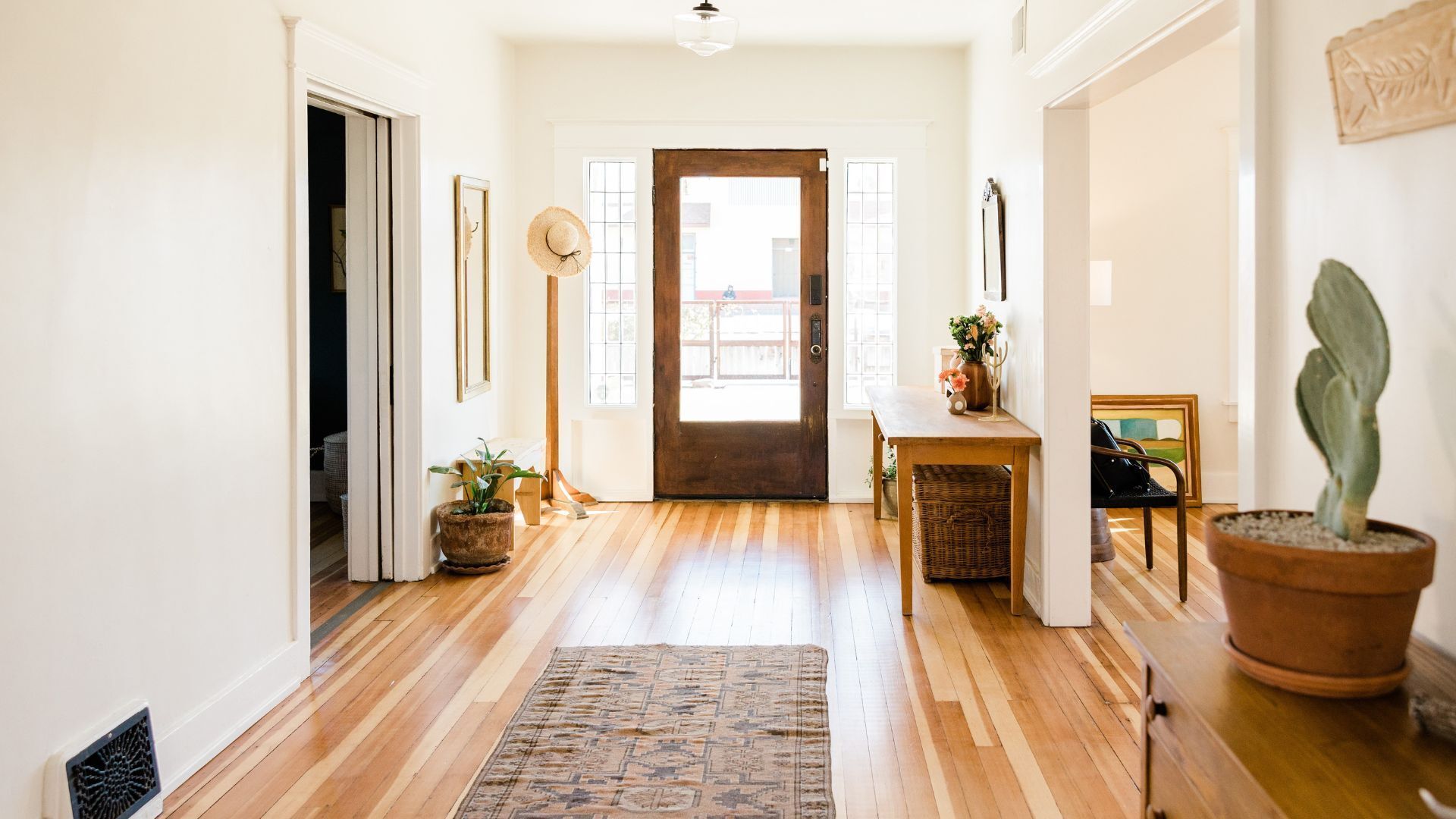THE BLOG
I ALWAYS KEEP MY BLOG UP TO DATE SO YOU CAN STAY INFORMED.

Summer in Canada is short—but sweet. With warm weather and long evenings, it’s the perfect time to get outside and enjoy your outdoor space, no matter how big (or small) it is. Whether you have a tiny patio or a sprawling backyard, a few creative upgrades can go a long way toward turning your space into your personal summer oasis. Below are ideas for every type of outdoor space, from cozy balconies to large backyards! For Patio-Only Spaces Limited to a balcony or concrete patio? No problem! Small spaces can still offer big enjoyment. 1. Upgrade the Flooring Add interlocking tiles to give your concrete floor a more polished look—wood grain, grass panels, or composite styles are all popular, easy-to-install options. 2. Create an Outdoor Movie Zone Hang a pull-down screen or grab a portable stand, pair it with a mini projector, and voilà—your very own outdoor movie theatre under the stars! 3. Start an Herb Garden Railing planters are perfect for growing basil, mint, parsley, and more. Fresh herbs at your fingertips—and they smell amazing too! 4. Add Some Twinkle Wrap fairy lights around your railing or overhead beams to bring cozy vibes and nighttime charm. 5. Grill Like a Pro Maximize your BBQ season with a compact baby-que. Weber’s Q Series is a great option for small spaces without compromising grilling power. For Small Yards A little yard can still pack a lot of personality. Here are ways to make the most of every square foot: 1. Game Time! Add a mini putting green or an axe-throwing target (just be safe!) for quick bursts of backyard fun that don’t take up much space. 2. Warm Up Your Nights Add a heating lamp or portable fire bowl to keep your evenings cozy well into the fall. 3. Grow Your Own Produce Build or buy a raised garden box to grow tomatoes, cucumbers, lettuce, or other easy vegetables. Gardening is relaxing—and delicious! 4. DIY Bird Bath Make a pedestal bird bath using an old vase, a platter, and strong glue. You likely have everything you need already at home—and the local birds will thank you! For Big Yards If space isn’t an issue, the sky’s the limit! Here are some larger-scale projects to take your yard to the next level: 1. Build a Catio Yep, it’s a “cat patio”! Give your feline friends a safe way to enjoy the outdoors with a screened-in enclosure attached to your home. 2. Create a Permanent Fire Pit Use stones and a fire ring to build a beautiful, safe fire pit. You can even add airflow cutouts to reduce smoke—perfect for those marshmallow roasts! 3. Tile a Dining Area Install paving stones or tiles to define an outdoor dining space. Add a table, some string lights, and enjoy al fresco meals all summer long. Need More Inspiration? If none of these projects quite fit your vision, check out Home Depot’s DIY backyard ideas—complete with step-by-step instructions and material lists to help you bring your outdoor dreams to life. Soak It Up While It Lasts No matter the size of your space, there’s always something you can do to enhance your outdoor experience. So get out there, get creative, and make the most of these sunny summer days. See you back here in August—with more tips, tricks, and homeowner insights!

With the latest stats claiming that about half of marriages end in divorce and with around three-quarters of Canadians being homeowners, it’s important to know how to handle your mortgage if you decide to separate. Here’s a quick list of things to consider. Keep making your payments. A mortgage is a legally binding contract between you and the lender. It doesn’t take marriage into account. If your name appears on the mortgage, you're responsible for making sure the regular payments are made. A marital breakdown does not give you an excuse not to make your mortgage payments. If, during your marriage, you've relied on your spouse to make the mortgage payments and you aren’t certain payments are being made after separating, it's in your best interest to contact the lender directly to verify your mortgage is being paid. If payments aren't being made, it could affect your credit score or worse; the lender could start foreclosure proceedings. There is always a financial cost to break your mortgage. When working through how to split your finances, you decided to either refinance your mortgage, remove someone from the title, or sell the property, keep in mind that you will incur legal costs. If you’re in the middle of a term, the penalty for breaking your mortgage might be significant, especially if you have a fixed-rate mortgage. It’s certainly worth contacting your mortgage lender directly to verify the cost of breaking your mortgage. Having that information accessible when writing out your separation agreement will provide increased clarity. Listing your marital status as separated or divorced. When completing a mortgage application for securing new mortgage financing, when you list your marital status as separated or divorced, you can expect that a lender will want to see your legal separation agreement or your divorce papers. The lender wants to make sure you aren’t responsible for support payments. So if you haven’t finalized the paperwork, expect delays in securing mortgage financing. It could be harder to qualify for a new mortgage. With the separation of assets also comes the separation of incomes. If you qualified for your existing mortgage on a double income, you might find it hard to maintain the same quality of lifestyle post-separation. This is where careful planning comes in. Working closely with your independent mortgage professional will ensure you understand exactly where you stand. You’ll want to put together a plan for how to handle the mortgage on the matrimonial home. Purchasing the matrimonial home from your ex. There are special considerations given to people going through a separation to buy out the matrimonial home. Instead of looking at the transaction like a refinance where you can only borrow up to 80% of the property’s value, lenders will consider one spouse buying out the other up to a 95% loan to value ratio. This comes in handy when dividing assets and liabilities. Navigating the ins and outs of mortgage financing isn’t something you have to do alone. If you're going through a separation and you’d like to discuss all your mortgage options, please connect anytime. It would be a pleasure to walk you through the process.

If you’re a first-time homebuyer eyeing a new build or major renovation, there's encouraging news that could make homeownership significantly more affordable. The federal government has proposed a new GST rebate aimed at easing the financial burden for Canadians entering the housing market. While still awaiting parliamentary approval, the proposed legislation offers the potential for thousands in savings —and could be a game-changer for buyers trying to break into today’s high-cost housing landscape. What’s Being Proposed? Under the new legislation, eligible first-time homebuyers would receive: A full GST rebate on homes priced up to $1 million A partial GST rebate on homes between $1 million and $1.5 million This could mean up to $50,000 in tax savings on a qualifying home—a major boost for anyone working hard to save for a down payment or meet mortgage qualification requirements. Why This Matters With interest rates still elevated and home prices holding steady in many regions, affordability remains a challenge. This rebate could offer meaningful relief in several ways: Lower Upfront Costs: Removing GST from the purchase price reduces the total amount of money buyers need to save before closing. Smaller Monthly Payments: A lower purchase price leads to a smaller mortgage, which translates to more manageable monthly payments. Improved Mortgage Qualification: With a reduced purchase amount, buyers may find it easier to meet lender criteria. According to recent estimates, a homebuyer purchasing a $1 million new home could see monthly mortgage payments drop by around $240 —money that could go toward savings, home improvements, or simply everyday expenses. Helping Families Help Each Other This proposal also offers a win for parents who are supporting their children in buying a first home. Whether through gifted down payments or co-signing, a lower purchase price and more affordable monthly costs mean that family support can go further—and set first-time buyers up for long-term success. Is This the Right Time to Buy? If you’re thinking about buying a new or substantially renovated home, this proposed rebate could dramatically improve your financial position. Now is the perfect time to explore your options and make sure your mortgage strategy is aligned with potential policy changes. 📞 Let’s connect for a free mortgage review or pre-approval. Whether you’re buying your first home or helping someone else take that first step, I’m here to help you make informed, confident decisions.

Worried About Your Mortgage Renewal? You’re Not Alone If your mortgage renewal is coming up soon, you're likely feeling a bit of financial pressure—and you’re not the only one. A recent survey shows that over half of Canadian homeowners believe their upcoming mortgage renewal could impact their current living situation. With interest rates still higher than what many borrowers locked in before 2022, 45% of those renewing in the next 12 months expect their monthly payments to increase. Even though the Bank of Canada has held its key overnight rate steady at 2.75%, borrowing costs remain elevated compared to the low-rate years we saw earlier in the decade. And that’s changing how Canadians think about their finances. Changing Plans and Tightening Budgets Among those worried about their renewal, 73% say they’re already cutting back on discretionary spending—things like eating out, entertainment, or travel—to brace for higher mortgage payments. For many, it goes deeper than just trimming the budget. Nearly one in four surveyed homeowners said they’re rethinking their entire financial strategy. Some are pressing pause on home renovations (43%), while others are considering downsizing or relocating to a more affordable area (29%). A smaller group (15%) is even open to major lifestyle changes, like moving in with roommates or relocating to a new neighbourhood altogether. Fixed-Rate Mortgages on the Rise In this climate, most homeowners looking to renew are leaning toward fixed-rate mortgages, with 75% preferring the stability of predictable payments. For those facing uncertainty, locking in a rate for the next few years can offer peace of mind—even if it means paying a little more in the short term. First-Time Buyers Are Feeling It Too It’s not just current homeowners feeling the pinch. A separate survey found that more than half of Canadians planning to buy a home are cutting back on non-essential spending to save for their down payment or other buying costs. About 31% are even considering tapping into savings or investment accounts like TFSAs, RRSPs, or first-time home savings accounts to make their purchase possible. What This Means for You Whether you’re preparing to renew or purchase for the first time, this environment calls for smart, strategic planning. You’re not alone in feeling uncertain—but with the right guidance, you can navigate these changes confidently. Have questions about your upcoming renewal or wondering what type of mortgage is right for today’s market? Let’s connect. We're here to help you make informed, confident decisions about your home financing.

If you're not all that familiar with the ins and outs of mortgage financing, the term "second mortgage" might cause a bit of confusion. Many people incorrectly assume that a second mortgage is arranged when your first term is up for renewal or when you sell your first home. They think that the next mortgage you get is your "second mortgage." This is not the case. A second mortgage is an additional mortgage on a single property, not the second mortgage you get in your lifetime. When you borrow money to buy a house, your lawyer or notary will register your mortgage on the property title in what is called first position. This means that your mortgage lender has the first claim against the sale proceeds if you sell your property. If you happen to default on your mortgage, this is the security the lender has in repossessing your property. A second mortgage falls in behind the first mortgage on your property title. When you sell your property, the lawyers will use the sale proceeds to pay off your mortgages in sequence, the first position mortgage is paid out first, and the second mortgage is paid out second. After both mortgages are paid off completely, you get the remaining equity. When you secure a second mortgage, you continue making payments on your first mortgage as per your mortgage agreement. You must also then fulfill the terms of the second mortgage. So why would you want a second mortgage? Well, a second mortgage comes in handy when you're looking to access some of your home equity, but you either have excellent terms on your first mortgage that you don't want to break, or you’d incur a huge penalty to break your first mortgage. Instead of refinancing the first mortgage, a second mortgage can be a better option. A second mortgage is often used as a short-term debt consolidation tool to help provide you with better cash flow. If you’ve accumulated a considerable amount of high-interest unsecured debt, and you have equity in your home, you can secure a second mortgage to lower your overall cost of borrowing. If you'd like to know more about how a second mortgage works, or if you'd like to discuss anything related to mortgage financing, please connect anytime!

In recent years, housing affordability has become a significant concern for many Canadians, particularly for first-time homebuyers facing soaring prices and strict mortgage qualification criteria. To address these challenges, the Canadian government has introduced several housing affordability measures. In this blog post, we'll examine these measures and their potential implications for homebuyers. Increased Home Buyer's Plan (HBP) Withdrawal Limit Effective April 16, the Home Buyer's Plan (HBP) withdrawal limit will be raised from $35,000 to $60,000. The HBP allows first-time homebuyers to withdraw funds from their Registered Retirement Savings Plan (RRSP) to use towards a down payment on a home. By increasing the withdrawal limit, the government aims to provide young Canadians with more flexibility in saving for their down payments, recognizing the growing challenges of entering the housing market. Extended Repayment Period for HBP Withdrawals In addition to increasing the withdrawal limit, the government has extended the repayment period for HBP withdrawals. Individuals who made withdrawals between January 1, 2022, and December 31, 2025, will now have five years instead of two to begin repayment. This extension provides borrowers with more time to manage their finances and repay the withdrawn amounts, alleviating some of the immediate financial pressures associated with using RRSP funds for a down payment. 30-Year Mortgage Amortizations for Newly Built Homes Starting August 1, 2024, first-time homebuyers purchasing newly built homes will be eligible for 30-year mortgage amortizations. This change extends the maximum mortgage repayment period from 25 years to 30 years, resulting in lower monthly mortgage payments. By offering longer amortization periods, the government aims to increase affordability and assist homebuyers in managing their housing expenses more effectively. Changes to the Canadian Mortgage Charter The government has also introduced changes to the Canadian Mortgage Charter to provide relief to homeowners facing financial challenges. These changes include early mortgage renewal notifications and permanent amortization relief for eligible homeowners. By implementing these measures, the government seeks to support homeowners in maintaining affordable mortgage payments and mitigating the risk of default during times of financial hardship. The recent housing affordability measures announced by the Canadian government are aimed at addressing the challenges faced by homebuyers in today's market. These measures include increasing withdrawal limits, extending repayment periods, and offering longer mortgage amortizations. The goal is to make homeownership more accessible and affordable for Canadians across the country. As these measures come into effect, it's crucial for homebuyers to stay informed about the changes and their implications. Consulting with a mortgage professional can help individuals explore their options and make informed decisions about their housing finances. If you're interested in learning more about these changes and how they may affect you, please don't hesitate to connect with us. We're here to walk you through the process and help you consider all your options and find the one that makes the most sense for you.

Dreaming of owning your first home? A First Home Savings Account (FHSA) could be your key to turning that dream into a reality. Let's dive into what an FHSA is, how it works, and why it's a smart investment for first-time homebuyers. What is an FHSA? An FHSA is a registered plan designed to help you save for your first home taxfree. If you're at least 18 years old, have a Social Insurance Number (SIN), and have not owned a home where you lived for the past four calendar years, you may be eligible to open an FHSA. Reasons to Invest in an FHSA: Save up to $40,000 for your first home. Contribute tax-free for up to 15 years. Carry over unused contribution room to the next year, up to a maximum of $8,000. Potentially reduce your tax bill and carry forward undeducted contributions indefinitely. Pay no taxes on investment earnings. Complements the Home Buyers’ Plan (HBP). How Does an FHSA Work? Open Your FHSA: Start investing tax-free by opening your FHSA. Contribute Often: Make tax-deductible contributions of up to $8,000 annually to help your money grow faster. Withdraw for Your Home: Make a tax-free withdrawal at any time to purchase your first home. Benefits of an FHSA: Tax-Deductible Contributions: Contribute up to $8,000 annually, reducing your taxable income. Tax-Free Earnings: Enjoy tax-free growth on your investments within the FHSA. No Taxes on Withdrawals: Pay $0 in taxes on withdrawals used to buy a qualifying home. Numbers to Know: $8,000: Annual tax-deductible FHSA contribution limit. $40,000: Lifetime FHSA contribution limit. $0: Taxes on FHSA earnings when used for a qualifying home purchase. In Conclusion A First Home Savings Account (FHSA) is a powerful tool for first-time homebuyers, offering tax benefits and a structured approach to saving for homeownership. By taking advantage of an FHSA, you can accelerate your journey towards owning your first home and make your dream a reality sooner than you think.

As the name implies, a cashback mortgage is similar to a standard mortgage, except that you receive a lump sum of cash upon closing. This lump sum will either be a fixed amount of money or a percentage of the mortgage amount, usually between 1-7%, depending on the mortgage term selected. How you use the cash is entirely up to you. Some of the most common reasons to secure a cashback mortgage are to: Cover closing costs. Buy new furniture. Renovate your property. Supplement cashflow. Consolidate higher-interest debt. Really, you can use the cash for anything you like. It’s tax-free and paid to you directly once the mortgage closes. Understanding the cost of a cashback mortgage. Now, while it might appear like a cashback mortgage is a great way to get some free money, it’s not. Banks aren’t altruistic; they’re in the business of making money by lending money. Securing a mortgage that provides you with cash back at closing will cost you a higher interest rate over your mortgage term. A cashback mortgage is like getting a fixed loan rolled into your mortgage. Your interest rate is increased to cover the additional funds being lent. Now, with so many different cashback options available and with interest rates constantly changing, it's nearly impossible to run through specific calculations on a simple article to outline how much more you’d pay over the term. So, if you'd like to identify the true cost of securing a cashback mortgage, the best place to start is to discuss your financial situation with an independent mortgage professional. When you work with an independent mortgage professional instead of a single bank, you receive unbiased advice, more financing options, and a clear picture of the cost associated with securing a mortgage. Getting cashback at closing is a mortgage feature that makes the bank more money at your expense. This isn’t necessarily a bad thing; the key is to be informed of the costs involved so you can make a good decision. Eligibility for a cashback mortgage. Simply put, a cashback mortgage isn’t for everyone. This is a mortgage product that has tougher qualifications than standard mortgage financing. Any lender willing to offer a cashback mortgage will want to see that you have stable employment, a fabulous credit score, and healthy debt service ratios. If your mortgage application is in any way “unique,” the chances of qualifying for a cashback mortgage are pretty slim. Breaking your mortgage term early. In addition to paying a higher interest rate to cover the cost of receiving the cashback at closing, a cashback mortgage also limits your options down the line. If your life circumstances change and you need to break your mortgage mid-term, depending on the conditions set out in your mortgage contract, you’ll most likely be required to either pay all of the cashback received or at least a portion, depending on how long you’ve had the mortgage. As all cashback mortgages are tied to fixed-rate terms, so in addition to repaying the cashback, you’d also be required to pay the interest rate differential penalty; or 3 months interest, whichever is greater for breaking your mortgage term early. Sufficed to say, should you need to pay out your mortgage early, breaking your cashback mortgage will be costly. Certainly, this is something to consider when assessing the suitability of this mortgage product. Get independent mortgage advice. Understanding the intricacies of mortgage financing can be difficult at the best of times. With all the different terms, rates, and mortgage products available, it’s hard to know which mortgage is best for you. So while a mortgage that offers a cash incentive upon closing might initially seem like an attractive offer, make sure you seek out the guidance of an independent mortgage professional to help you navigate the costs associated with a cashback mortgage. While it might be a great option for you, there might be other mortgage options that better suit your needs. It's worth a conversation for sure! If you’d like to discuss what a cashback mortgage or any other mortgage product would look like for you, please get in touch. It would be a pleasure to work with you.

If you’ve been thinking about buying a property, whether that be your first home, next home, forever home, or a home to retire into, the current state of the Canadian economy might have you wondering: Is this really the right time to make a move? There is certainly no shortage of doom and gloom in the news out there. The truth is, that’s a tough question to answer in the best of times. It’s nearly impossible to know for sure what’s going to happen next with the housing market in Canada. It could heat up or it could cool down. So here’s some advice. Instead of basing your buying decision entirely on external market factors, like the economy or housing market, consider looking for the answers internally. When you stop looking at the market to determine your timing to buy a home, and instead examine the personal reasons you have for wanting to buy a home, the picture can become much clearer. Here are some questions to consider. Although they are subjective, they will help bring you clarity. Ask yourself: Does buying a property now put me in a better financial position? Do I make enough money now to afford a new home and maintain my lifestyle? Do I feel confident with my current employment status? Have I saved enough money for a down payment? How long do I plan on living in this new home? Is there any scenario where I might have to sell quickly and potentially lose money? Does buying a property now move me closer to my life goals? Do I really want to buy now or am I just feeling a lot of pressure to just buy something? Am I holding back because I'm scared property prices might drop soon? There’s no doubt that buying a home can be stressful, but it doesn’t have to be. Having a plan in place is the best course of action to help you make good decisions and alleviate that stress. If you’d like to have a conversation to discuss your plans, ask some questions, and map out what buying a home looks like for you, we can address many of the unknowns together. The best place to start is to work through a mortgage pre-approval. There is no cost for this service, you’ll learn exactly what you can qualify for, and it will provide a lot of clarity about your situation. You might decide that it’s best to wait before buying, and that’s just fine. You might find that now’s a perfect time for you to buy! If you'd like to talk, please connect anytime. You’re not in this alone. We can work through everything together.


